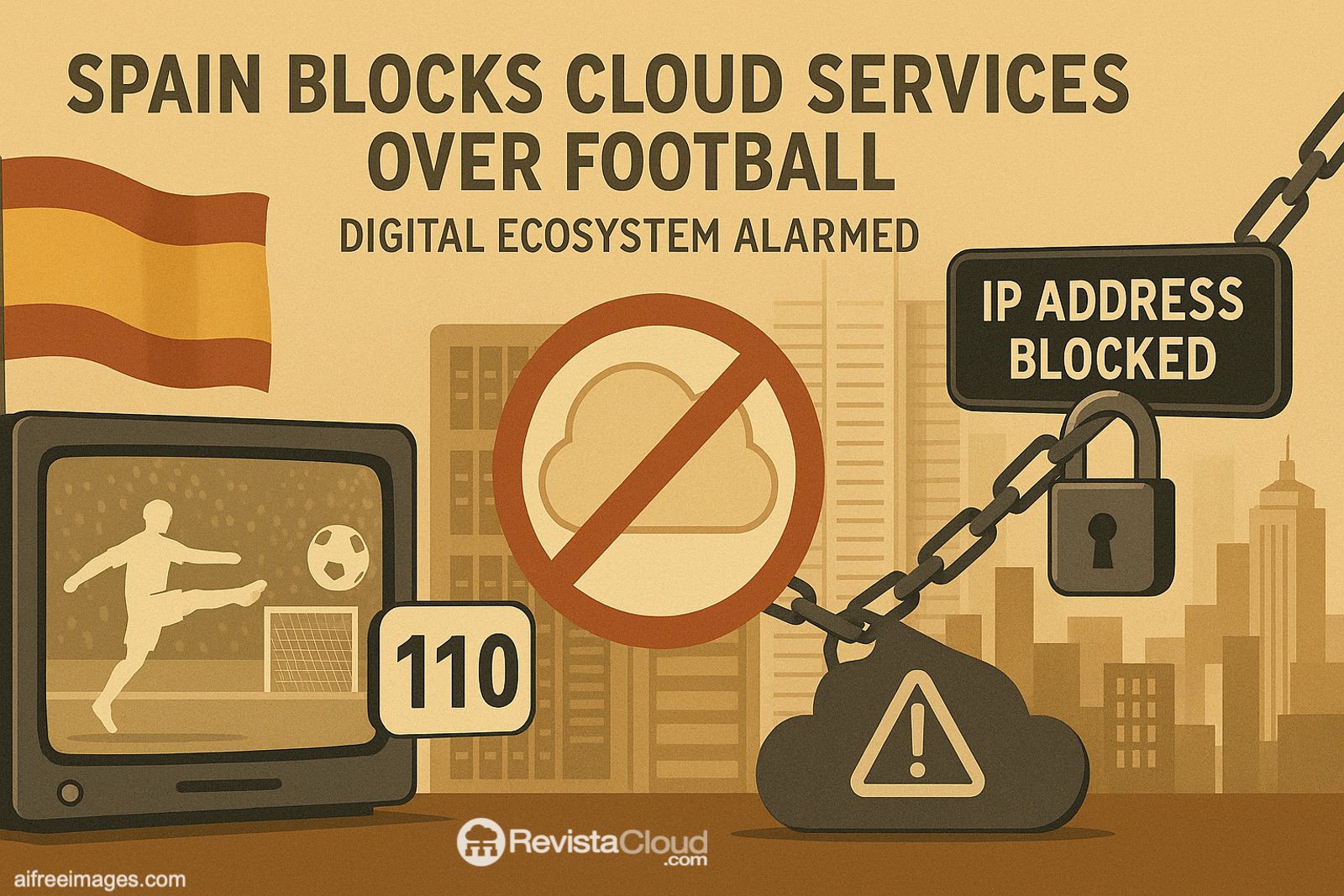The start of the 2025/2026 La Liga season not only brought back the excitement of football but also sparked a major online controversy. As in previous seasons, the main telecom operators in Spain—Movistar, Vodafone, and Orange—have resumed mass blocking of IP addresses associated with illegal streams of matches. However, this measure has also ended up impacting legitimate websites and services unrelated to football.
Users across the country began reporting access problems to various websites and services just minutes before the first game kicked off. On specialized forums such as bandaancha.eu, dozens of users explained how their connections failed when trying to access pages hosted behind Cloudflare, a content delivery network used by thousands of platforms worldwide.
Reports indicated that:
- Movistar started experiencing errors 451 early in the day, which escalated to complete blocks (blackhole) at the time of the match.
- Vodafone showed generic error messages initially and later also blocked related domains.
- Orange implemented direct mass blocks on implicated IP addresses.
According to those affected, the pattern was clear: within 5 to 10 minutes before kickoff, the blocks began to expand in a coordinated manner.
These measures stem from a court order issued in December 2024 by the Commercial Court No. 6 in Barcelona, which authorizes La Liga to order weekly blocking of IP addresses linked to match piracy. The organization claims these steps are necessary to protect audiovisual rights and combat illegal streaming online.
The issue is that many of those IP addresses are shared; for example, Cloudflare groups numerous websites under the same addresses. This means that blocking an IP used to watch a pirated match also inaccessible websites unrelated to sports, such as government portals or everyday services.
La Liga insists it is acting within legal boundaries and with judicial approval, but critics argue that these practices threaten network neutrality and the right of citizens to access information. Cloudflare has initiated legal action against La Liga in Spain, describing the practice as “disproportionate and ineffective,” warning it severely impacts thousands of users and businesses relying on its services.
There has been movement in Congress as well, with parliamentary groups proposing a review of the scope of these measures to prevent punishing innocent users involved in piracy.
In social media and forums, frustration remains high: many users who switched providers expecting fewer blockers have discovered that all major companies implement similar measures. Others criticize that while legitimate sites are blocked, those truly wanting to watch matches without paying still find ways around restrictions using VPNs or other methods, often without much difficulty.
Some recommend tools like Cloudflare Warp or VPN services as workarounds, though these are not always stable and can also be subject to blockades.
This situation highlights a growing clash between two interests: on one side, protecting football broadcasting rights; on the other, ensuring that internet access in Spain remains free, neutral, and secure.
The start of La Liga once again emphasizes a broader issue, beyond sports—how to balance protecting intellectual property with fundamental rights and the proper functioning of essential online services.
Frequently Asked Questions (FAQ):
Why does La Liga block websites at the start of each match?
It does so under a court order that allows it to request operators to block IP addresses used for illegal streaming of matches.Why are legitimate websites affected?
Many sites and services share IPs through networks like Cloudflare. If an IP is blocked because of piracy, access to all other sites using the same IP is also interrupted.Can these blocks be avoided?
Some users use VPNs or tools like Cloudflare Warp, but these are not foolproof solutions and may also face restrictions.What legal consequences do these blocks have?
While La Liga claims to act legally, advocacy groups and tech companies question whether the measures are proportional, arguing they impact network neutrality and the right to access information, leading to judicial challenges.

